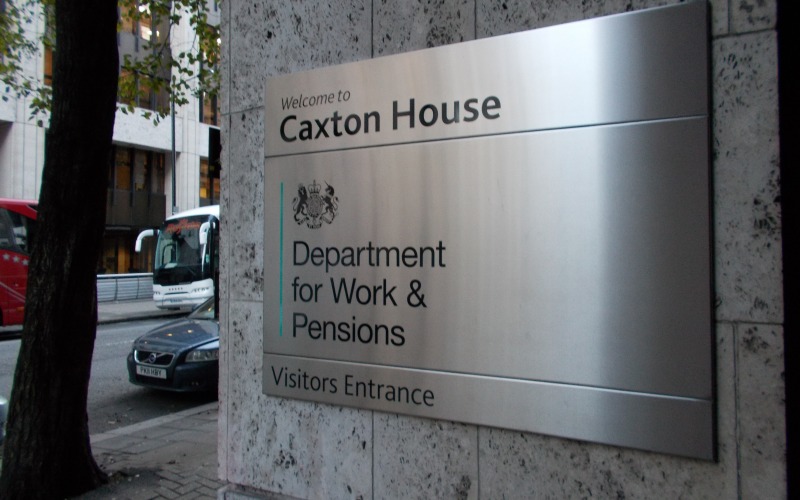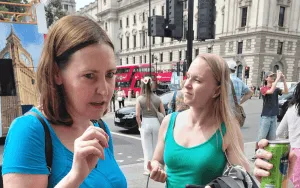The Department for Work and Pensions (DWP) has finally agreed that all disabled people being assessed for personal independence payment (PIP) will be able to have their face-to-face assessments recorded.
The promise has come in a letter to the Right to Record action group, a disabled-led group of campaigners in Barking and Dagenham, who have been meeting online every week for the last six months.
They worked with audio artist Hannah Kemp-Welch to collect testimonies of people who have applied for PIP, lobby MPs, and produce a radio programme to “creatively campaign for change”.
They have been pushing ministers to fulfil the government’s promise to ensure there is audio equipment in every PIP assessment centre, or if they could not do that, allow claimants to record their assessments using their mobile phones or other devices.
In one of the letters, they told Justin Tomlinson, the minister for disabled people: “Members of our action group have given testimony of their overwhelmingly negative experiences of PIP assessments – specifying demeaning treatment and inaccurate written reports by assessors amongst other issues.”
They argued that the current rules that allow audio recording of PIP assessments force claimants to bring their own equipment, which must be able to produce two identical copies of the recording on audio cassette or CD.
They told Tomlinson that this presents “an insurmountable barrier” to claimants wishing to take advantage of their right to an audio record of their assessment.
Research in 2019 (PDF) by the International Disability Law Clinic (IDLC), based at the University of Leeds, concluded that not having audio recording available at PIP assessments was unlawful.
IDLC found that DWP’s “delay in honouring its commitment to put in place recording equipment” at every PIP assessment breached the Equality Act 2010, the European Convention on Human Rights and the UN Convention on the Rights of Persons with Disabilities.
Now the action group has received a response from ministers which says audio recording should be available by the time DWP resumes face-to-face PIP assessments, which are currently “paused” because of the COVID-19 pandemic.
DWP has told its two private sector contractors, Atos and Capita, that all face-to-face PIP assessments will have to be recorded, although it seems that claimants will still have to request that their assessment is recorded, rather than it happening automatically.
In a letter written on behalf of ministers last week, a DWP civil servant says: “We have recently started working with both assessment providers… to find a suitable method of audio recording which we hope to have in place with the reintroduction of face-to-face assessments.
“This will remove the need for claimants to source a device which meets the required specifications to bring to their assessment as the assessment provider will record the assessment on the claimant’s behalf.”
Audio recording of telephone PIP assessments – introduced for some claimants during the pandemic – has been available through Atos since 21 September 2020 and through Capita since 30 November 2020, the letter adds.
Kevin Walton, a member of the action group, told Disability News Service (DNS): “I got involved with this campaign because I am fed up being called a liar by Atos Healthcare.
“I have had three PIP assessments and have had to go to a tribunal every time, all got overturned.”
He said that ensuring recording equipment was available for all PIP assessments “would be beneficial to everyone and stop unnecessary postponement and suffering for those claiming”.
He said: “We also need medical assessments from our own GPs, which will benefit all involved.”
Walton said that “too many people have been let down by this greedy government” and that it was time for disabled people “to take a stand”.
He said the project showed that disabled people “are able to make a difference and hopefully stop the lying private assessors”.
Another action group member, Carina Murray, said: “Collaborating with other individuals with similar experiences as myself – trying to navigate the brutal process of the assessment system of PIP – has been an empowering experience.
“It has enabled me to switch from the narrative of feeling like a criminal to a person who has valid legal rights to be heard in a fair and just manner, without fear of reprisal.
“Recording assessments will fill in the blanks where information gets missed, so our voices will be heard.”
She said the action group would also like claimants to have a “no equipment, no assessment” right, so if there is no working recording equipment on-site and available, the claimant would have a right to postpone their assessment without the risk of “punitive action” by DWP.
A DWP spokesperson declined to add to the letter sent to the action group, but he confirmed that “an opt-in system remains in place for the audio recording of both telephone and face-to-face assessments”.
Disabled activists have been campaigning for years to persuade DWP to make it easier for claimants to record their assessments, because of widespread concerns about the accuracy of assessment reports.
DNS spent months investigating allegations of dishonesty by PIP assessors in late 2016 and throughout 2017, hearing eventually from more than 250 disabled people in less than a year who said their assessment reports had been dishonest.
They told DNS that assessors working for Capita and Atos – many of them nurses – had repeatedly lied, ignored written evidence, and dishonestly reported the results of physical examinations.
Some disabled activists responded to the government’s continuing failure to deal with the dishonesty and inaccuracy of the PIP assessment process by launching schemes to lend expensive recording equipment to claimants so they could record their own assessments.
Liza Vallance, artistic director and chief executive of Studio 3 Arts, the non-profit organisation that commissioned Kemp-Welch, said: “This moment truly demonstrates the power of art as a vehicle for change.
“I’m so proud that Studio 3 Arts has played a part in making this happen – creating a space to hear from, and be led by, local people with experience of the PIP assessment system.
“As someone with a chronic condition and my own experience of navigating the system, I am personally honoured to be able to stand alongside Hannah and our group and say ‘we made this happen’.”
The commission is part of a wider Studio 3 Arts project that was funded by Barking and Dagenham council through its Connected Communities community cohesion project.
A note from the editor:
Please consider making a voluntary financial contribution to support the work of DNS and allow it to continue producing independent, carefully-researched news stories that focus on the lives and rights of disabled people and their user-led organisations.
Please do not contribute if you cannot afford to do so, and please note that DNS is not a charity. It is run and owned by disabled journalist John Pring and has been from its launch in April 2009.
Thank you for anything you can do to support the work of DNS…

 Disabled MP who quit government over benefit cuts tells DNS: ‘The consequences will be devastating’
Disabled MP who quit government over benefit cuts tells DNS: ‘The consequences will be devastating’ Minister finally admits that working-age benefits spending is stable, despite months of ‘spiralling’ claims
Minister finally admits that working-age benefits spending is stable, despite months of ‘spiralling’ claims Timms says cuts must go ahead, despite being reminded of risk that disabled claimants could die
Timms says cuts must go ahead, despite being reminded of risk that disabled claimants could die